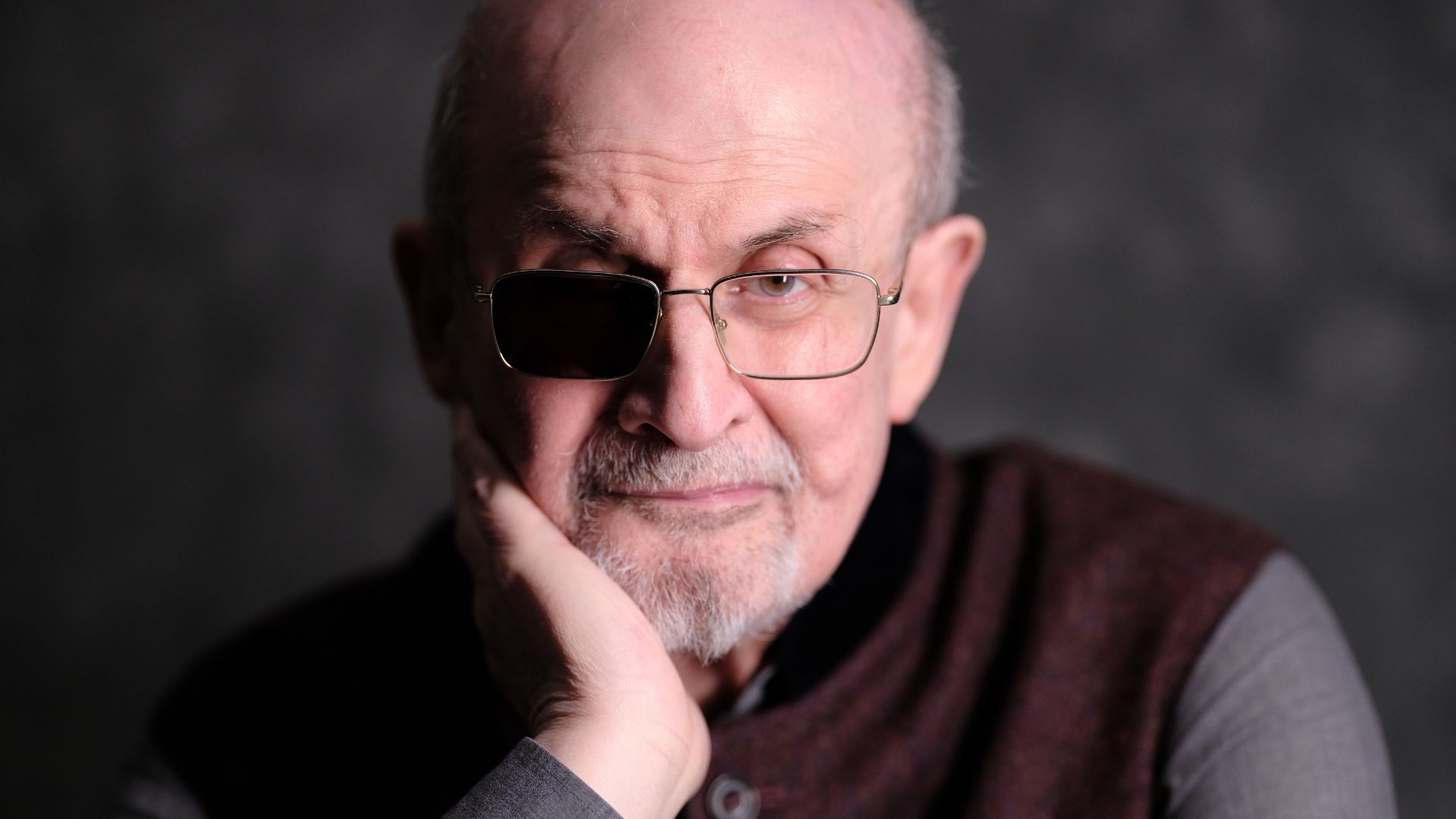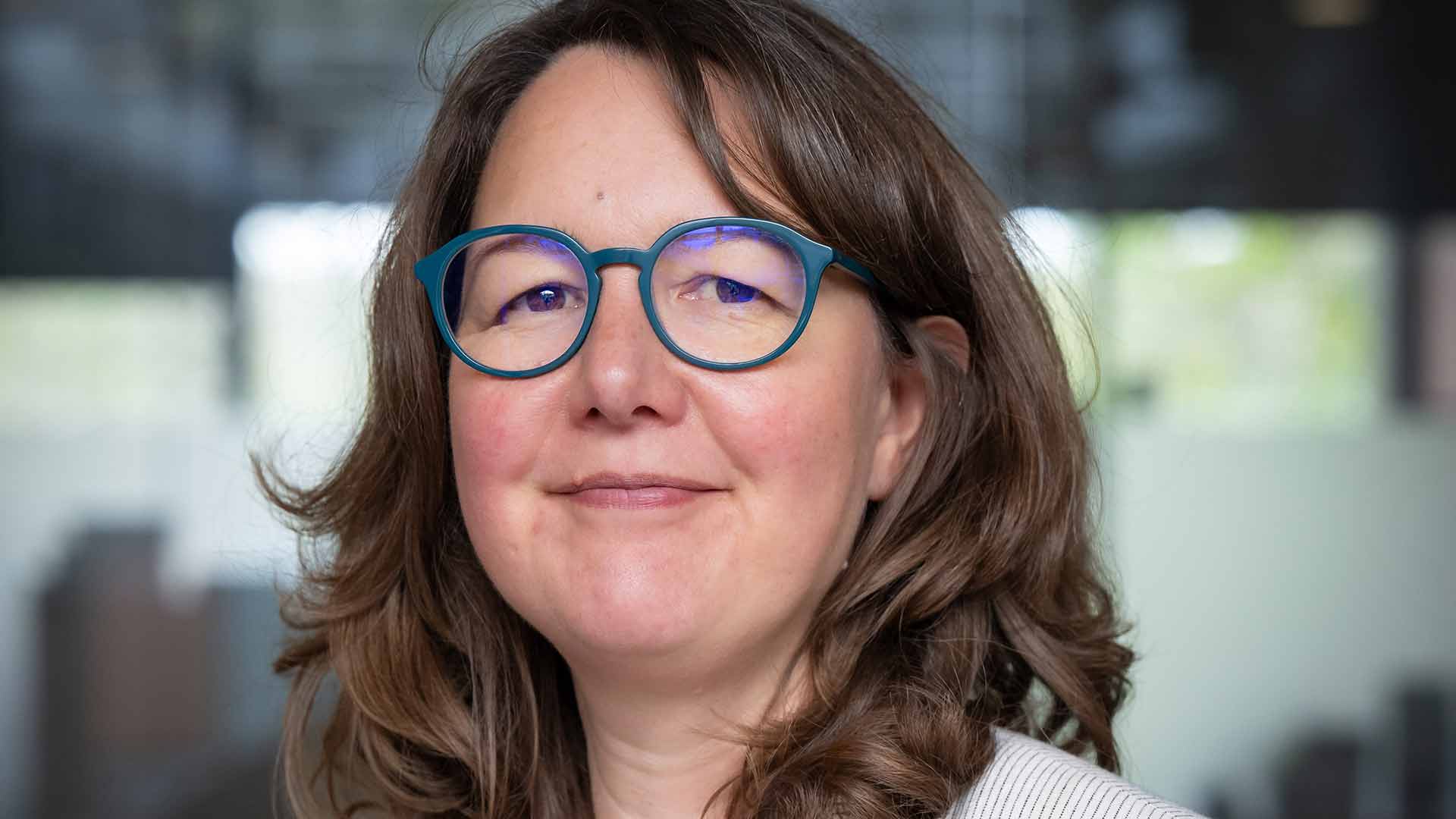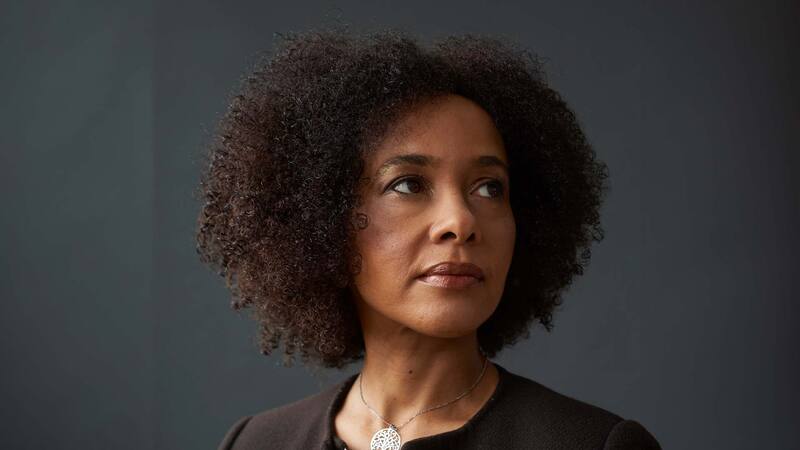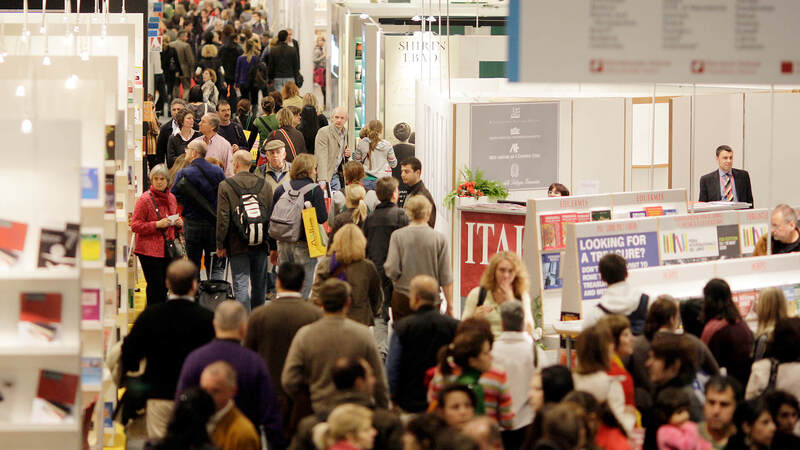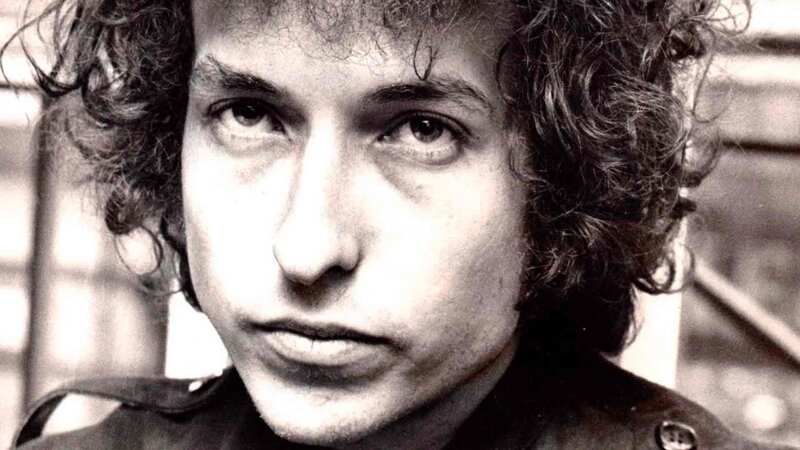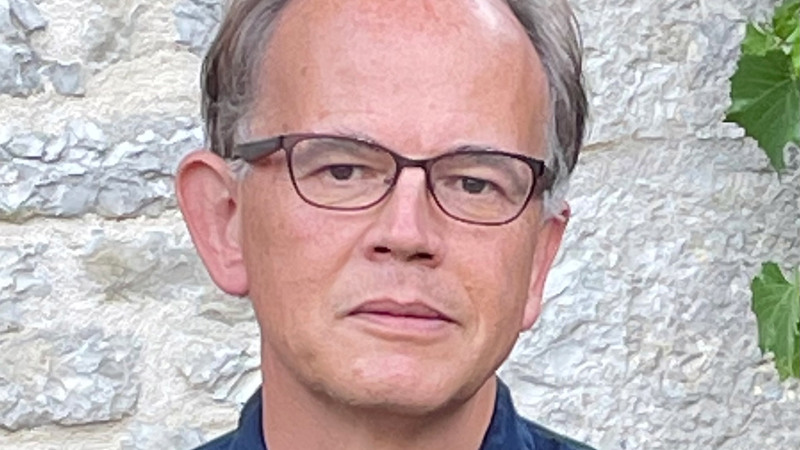You are viewing your 1 free article this month. Login to read more articles.
Rushdie describes 'difficult year' at FBF press conference
Salman Rushdie says he has had a “difficult year” but believes writing is “a form of optimism”.
He was speaking at a press conference at this year’s Frankfurt Book Fair, ahead of accepting the Peace Prize of the German Book Trade. The event had strict security and was a rare public appearance for Rushdie after being attacked last summer in New York, losing sight in one eye.
He told reporters he was glad to be back and said writing books “is a form of optimism”, as it involves dedicating years of your life believing that someone is going to read what you write. He said literature is what gives him hope during "dark times" in the world.
The conflict in the Middle East has cast a shadow over events at the book fair this year and Rushdie was also questioned on his thoughts. He said he was “filled with horror” about the attack by Hamas on Israel, and “filled with foreboding” about what Israeli prime minister Benjamin Netanyahu might do in return. He said he hoped there would be a "cessation in hostilities” as soon as possible.
It’s been two weeks since Hamas launched its assault on Israel, killing more than 1,400 people. Palestinian officials in Gaza say more than 4,600 have been killed since then.
Rushdie also spoke out against censorship, and expressed concern that younger writers feel compelled to limit what topics they address: "My view is that everybody can write about everything. If that’s not true, then the art of the novel ceases to exist. The question is whether they do it well or badly — to my mind, that’s the only question."
He went on to criticise recent moves to prosecute Booker Prize-winning Indian novelist Arundhati Roy. Earlier this month, Indian media reported that Roy, a critic of prime minister Narendra Modi’s government, could be prosecuted for a 2010 speech about Kashmir.
Rushdie was also questioned on recent developments in artificial intelligence, which have dominated talks at this year’s fair. Rushdie did not appear overly concerned, telling reporters he did an experiment with ChatGPT asking for 300 words in his style. He described what came out as “rubbish”. However he noted the ability of artificial intelligence to simulate images and imitate voices was a concern due to its ability to be a “source of fake news”.
Accepting the Peace Prize at a ceremony held in Frankfurt’s Church of St Paul on Sunday (22nd October) Rushdie again spoke of the search and longing for peace, as well as freedom of expression, “without which the world of books could not exist”. He argued for the need to “answer bad speech with better speech, to counter false narratives with better narratives, to answer hate with love, and to believe that the truth can still succeed even in an age of lies” and said “publishers are among the most important guardians of freedom”.





